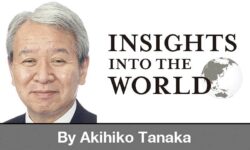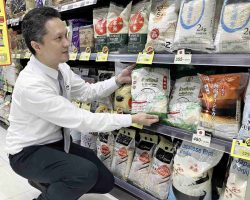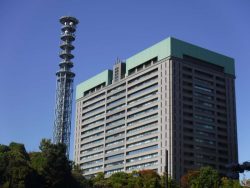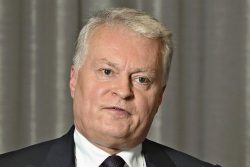Japan-S. Korea Leaders Meeting: Prevent Bilateral Cooperative Relations from Going Backward
15:17 JST, June 20, 2025
The security environment in Northeast Asia is becoming ever more severe. The free trade regime is also at a crossroads due to the impact of U.S. President Donald Trump’s tariff policy.
It likely can be said that Japan and South Korea share common challenges in terms of security and economic policy. If relations between the two countries deteriorate again, they will not be able to overcome their predicament. The need to deepen cooperation between the neighboring countries has grown significantly.
In Canada, where the summit of the Group of Seven advanced nations was held, Prime Minister Shigeru Ishiba and South Korean President Lee Jae-myung, who took office this month, met for about 30 minutes. It was their first in-person meeting.
This year marks the 60th anniversary of the normalization of diplomatic ties between Japan and South Korea. Based on that, the two leaders reached an agreement on deepening communication toward the stable development of Japan-South Korea relations. They also agreed on a policy of continuing reciprocal visits by the leaders.
Former South Korean President Yoon Suk Yeol had significantly improved relations between the two countries. The solution Yoon worked out to the issue of lawsuits regarding former wartime requisitioned workers from the Korean Peninsula has been accepted by many parties involved.
In addition, in defense cooperation between Japan, the United States and South Korea, as well as between Japan and South Korea, a mechanism for the immediate sharing of information on North Korean missiles has been established among the three countries. Many have highly praised the diplomatic skills of Yoon, who had looked squarely at the security environment.
Lee, however, has criticized such responses by Yoon as being a “diplomacy of humiliation toward Japan.” In the past, he also has called Japan a “hostile state.”
During his recent presidential election campaign, Lee did not communicate such messages. However, the Japanese side was wary that he might rehash historical issues between the two countries at the meeting with Ishiba.
In the end, Lee expressed his desire for “better relations in a future-oriented manner” at the meeting. In the face of the worsening security environment, Lee may have judged it better to maintain relations with Japan for the time being.
In the past, there have been many South Korean presidents who have initially taken a conciliatory stance toward Japan when they took office but then touted their “anti-Japanese” stance when their approval ratings declined. It remains to be seen whether Lee will be able to maintain his position on Japan.
North Korea has sent soldiers to Russia, which is engaged in aggression against Ukraine, and in return has received assistance in missile technology and other areas. Expanded military cooperation between Russia and North Korea is a threat to Japan and South Korea.
Japan and South Korea are also similar in that they are vulnerable to Trump’s tariff measures due to their large auto exports to the United States. There may be approaches in which the two countries, as allies of the United States, can cooperate through their measures against U.S. tariffs.
People traveling between the two countries reached a record high of over 12 million last year. It is hoped that mutual understanding between the people of the two countries will be deepened through continued exchanges.
(From The Yomiuri Shimbun, June 20, 2025)
"Editorial & Columns" POPULAR ARTICLE
-

Mt. Fuji Eruption: Preparations Necessary for Widespread Ashfall
-

Nippon Steel’s Acquisition To Be Approved: Deal Should Be a Symbol of Japan-U.S. Economic Cooperation
-

Basic Economic, Fiscal Policy Draft: Deepen Strategy to Increase Take-home Pay
-

With Trump Back, Japan Must Expand Foreign Policy
-

Armitage Strengthened Japan-U.S. Alliance; Late Statesman Saw Great Potential of Bilateral Ties
JN ACCESS RANKING
-

Aichi Rice Production Under Siege from Warming Climate; Record Heat Stunts Crop Growth, Causes Greater Pest Activity
-

Japanese Researchers Develop ‘Transparent Paper’ as Alternative to Plastics; New Material Is Biodegradable, Can Be Produced with Low Carbon Emissions
-

Japan’s Cooperation in Alaska LNG Development Project Emerges in Japan-U.S. Tariff Negotiations; But Industry Concerns Exist
-

Trump: Nippon Steel Will Part Own U.S. Steel, U.S. to Be in Control; Share Distribution, Other Details Remain Unclear
-

Average Retail Rice Price Up for Second Consecutive Week; More Than Double Same Period Last Year


















